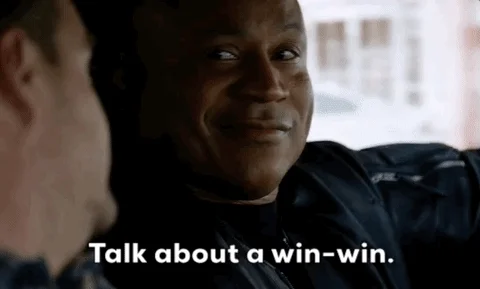Imagine:
You find yourself in a conflict with a colleague over a project deadline. You have different ideas about its execution, and tensions are running high. Emotions are flaring, and it seems like there's no common ground in sight.

What should you do?
Did you know that conflicts can consume valuable time and hinder productivity?
It's time to equip yourself with the essential skills to navigate conflicts efficiently. These 5 strategies helped me create positive outcomes — and they can help you, too!
1. Active Listening

When conflicts arise, the first step is to listen actively. Give your full attention to the other person, seeking to understand their perspective without interruption. By doing so, you show respect and create an environment conducive to open dialogue.

In one instance, I was part of a team working on a project with tight deadlines.
Conflicts arose due to miscommunication and misunderstandings between team members.
To address this, I practiced active listening by scheduling a team meeting where everyone had the chance to express their concerns and perspectives.
By actively listening to each team member's viewpoints without interruption, we were able to clarify misunderstandings, identify common ground, and establish clear communication channels. This helped us resolve conflicts and improve collaboration moving forward.
2. Empathy and Perspective-Taking

Empathy is crucial in conflict resolution. Put yourself in the other person's shoes and try to see the situation from their perspective. This helps foster understanding and builds a foundation for finding common ground.
During a team restructuring process, I found myself in a conflict with a colleague who felt their role was marginalized.
To better understand their perspective, I took the time to engage in empathetic conversations.
By actively listening and putting myself in their shoes, I gained insights into their concerns and frustrations.

This allowed me to address their needs more effectively and find a compromise that acknowledged their contributions while aligning with the team's goals.
The practice of empathy and perspective-taking helped build trust and restore a positive working relationship.
3. Collaborative Problem-Solving

Instead of approaching conflicts as win-lose scenarios, strive for collaborative problem-solving. Work together to find a solution that meets both parties' needs and goals. This approach encourages cooperation and strengthens relationships.

In a cross-functional project I worked on, conflicts arose due to conflicting priorities and resource constraints.
Rather than approaching the situation as a competition, we embraced collaborative problem-solving.
Through open dialogue and brainstorming sessions, we collectively identified potential solutions that would benefit all teams involved.
By focusing on finding win-win solutions, we were able to pool our resources, adjust timelines, and allocate tasks in a way that accommodated everyone's needs. This collaborative approach fostered a sense of unity, leading to successful project completion.
4. Assertiveness and Respectful Communication
 When expressing your concerns, be assertive but respectful. Clearly articulate your thoughts and feelings, using "I" statements to avoid sounding accusatory. Encourage open and honest communication to foster mutual understanding.
When expressing your concerns, be assertive but respectful. Clearly articulate your thoughts and feelings, using "I" statements to avoid sounding accusatory. Encourage open and honest communication to foster mutual understanding.
I encountered a conflict with a colleague who consistently disregarded my input during team meetings.
To address this, I practiced assertiveness and respectful communication. I scheduled a one-on-one conversation with my colleague, expressing my concerns using "I" statements and emphasizing the impact their behavior had on the team's dynamic.

By communicating my thoughts and feelings assertively but respectfully, I was able to have an open dialogue with my colleague, gain mutual understanding, and establish a more inclusive and collaborative work environment.
5. Mediation or Third-Party Assistance

If conflicts escalate or persist despite your best efforts, don't hesitate to seek mediation or involve a neutral third party. Bringing in an objective perspective can help facilitate productive discussions and find resolution.

In a situation where conflicts escalated between two team members, I recognized the need for outside assistance to facilitate resolution.
I recommended involving a neutral third party, such as a team lead or HR representative, to mediate the discussion.
This impartial mediator helped create a safe and constructive space for both parties to express their concerns and find common ground.
With their guidance, we were able to reach a compromise and rebuild a functional working relationship.
Quiz: Tension on the Project

You and a coworker have differing opinions on how to approach a project. The disagreement is causing tension and hindering progress. What should you do?
A. Avoid the conflict and hope it resolves itself.
B. Listen actively, express your perspective respectfully, and seek a compromise.
C. Insist on your own approach without considering your coworker's viewpoint.
D. Engage in personal attacks and confrontational behavior to assert your viewpoint forcefully.
Quiz
Choose the most appropriate course of action you can take to resolve the conflict.
Take Action
Conflict at work is inevitable, but how you handle it makes all the difference. By actively listening, showing empathy, collaborating, communicating assertively, and seeking assistance when needed, you can navigate conflicts successfully.
 Photo by krakenimages on Unsplash
Photo by krakenimages on UnsplashRemember these 5 strategies that help you resolve conflicts:
Your feedback matters to us.
This Byte helped me better understand the topic.
